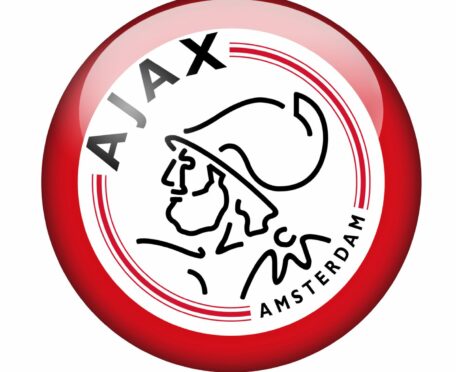
An international bid to convict football hooligans for a night of violence in Scotland has ended in farce after just two thugs were handed community service orders in Holland.
Dozens of masked ultras supporting Dutch side Ajax wreaked havoc at pubs in the east end of Glasgow in November 2015, hitting Celtic fans and pub staff with iron bars before a European match at Parkhead.
CCTV images showed pub bouncers desperately trying to pull down security shutters to prevent the mob entering the premises.
Neil O’Donnell, boss of The Hoops Bar, was knocked out with a slab of concrete and had to be fitted with a titanium plate in his face, which will be there for life.
The Crown Office in Edinburgh drew criticism for giving up the right to prosecute 15 identified hooligans in a Scottish court, instead passing the files and witness statements to the Dutch prosecution service for them to stage a trial.
However, when proceedings concluded in Amsterdam this week, just two men were convicted over their part in the “riot” and were handed community service orders of 150 and 200 hours.
It means they will do unpaid work in care homes and clean up play parks.
O’Donnell said: “That sentence won’t un-scar my face. This was always a show exercise by the Crown Office.
“As soon as they allowed the case to go to Holland I knew it would never come to anything. It’s a disgrace. They should have been put on trial here.”
No officers travelled to Holland for the trial but three went to Amsterdam in January 2020 to present evidence to an examining magistrate, ahead of this summer’s hearings.
When legal proceedings opened in Holland in June, the Dutch prosecutor said he was not convinced by their evidence against 10 of the accused.
Crown Office embarrassment is compounded by the fact that the Dutch legal authorities have used the end of the trial to criticise Scots prosecutors for the time they took to hand the case over to Holland.
A press statement issued at the end of the trial by The Dutch Courts of Law said: “When determining the penalty, it was taken into account that the handling of the case took a very long time.
“This was partly due to the transfer of the file from Scotland to the Dutch authorities and the pandemic.”
Explaining the reasons for acquitting the remaining 13 suspects, the statement added: “In three cases, although the file raises questions about the role of the suspects during the riots, the evidence is insufficient to determine exactly what their part was.
“Therefore, they should be acquitted. With regard to the last 10 suspects, the court agrees with the Public Prosecution Service and the defence that they should be acquitted because the camera images do not convincingly show that they can be seen in the images of the riots.”
In the November 2015 attacks, dazed victims were left wandering the streets of Glasgow’s city centre. One bloodied fan was found in Central Station, more than a mile away, and couldn’t remember how he got there.
Billy Gold, the owner of the Hielan Jessie pub, in the Gallowgate, which was also attacked, described the night’s events as “violence on an industrial scale”. The 64-year-old said: “Neil [O’Donnell] was treated disgracefully. No-one should go to their work and be assaulted.
“As far as the Crown Office is concerned, jurisdiction should lie where the crime happened. That means they should have been tried here.”
The Crown Office was asked if it felt justice had been served in the case and whether it had taken too long to process it. It declined to comment.

Enjoy the convenience of having The Sunday Post delivered as a digital ePaper straight to your smartphone, tablet or computer.
Subscribe for only £5.49 a month and enjoy all the benefits of the printed paper as a digital replica.
Subscribe